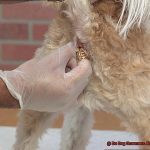Do French Bulldogs Bark A Lot?
Meet the French Bulldog – a pint-sized bundle of charm with ears that could rival Batman’s and a squishy face that melts hearts. But, do these little cuties have a big bark? Join us on this exciting journey as we unravel the mysteries of French Bulldog barking habits.
Get ready for an adventure that goes beyond the textbooks and reveals intriguing insights about these furry wonders. We’ll explore their language skills, from adorable grumbles to ear-piercing yaps, that make French Bulldogs stand out in the canine crowd.

So, fellow dog enthusiasts, let your curiosity run wild as we embark on a thrilling exploration of the barking tendencies of French Bulldogs. It’s time to separate fact from fiction and uncover the truth about their vocal nature. Are you ready? Let’s dive right in.
Do French Bulldogs bark a lot
Contents
- 1 Do French Bulldogs bark a lot
- 2 Understanding the Barking Habits of French Bulldogs
- 3 Reasons Why French Bulldogs May Bark
- 4 The Impact of Socialization and Training on Barking Behavior
- 5 Distinguishing Between Different Types of Barks
- 6 Providing Mental and Physical Stimulation to Reduce Excessive Barking
- 7 Seeking Professional Guidance for Problematic Barking
- 8 Conclusion
One question that often arises when considering this breed is whether they bark a lot. In this article, we will explore the barking tendencies of French Bulldogs and shed light on why they typically do not bark excessively.
French Bulldogs: Not Your Typical “Yappy” Dogs:
French Bulldogs are known for their calm and laid-back nature, making them a breed that generally does not bark excessively. Unlike some other breeds that may bark at every little noise or movement, French Bulldogs have a more moderate barking behavior.
Communication through Sounds:
While French Bulldogs may not bark a lot, they still find ways to communicate their needs and express themselves. These sounds can include growling, snorting, grunting, and even occasional howling. Understanding the context and meaning behind these sounds can help owners better interpret their French Bulldog’s communication.
Factors Influencing Barking Behavior:
- Territoriality: French Bulldogs are generally not as territorial as some other breeds, which means they may not feel the need to bark to protect their territory. Their friendly and sociable nature contributes to their overall lower barking tendencies.
- Adaptability: French Bulldogs are known for their adaptability and ability to live in smaller spaces like apartments. Their lower exercise needs and less vocal nature make them suitable for urban environments where excessive barking could be a nuisance.
Individual Differences:
It is important to remember that every dog is unique, and some French Bulldogs may have more pronounced barking tendencies than others. Factors such as personality, training, and socialization can influence a dog’s barking behavior.
Addressing Excessive Barking:
If a French Bulldog starts to bark excessively or unusually, it may be a sign of an underlying issue. Boredom, anxiety, or frustration can contribute to excessive barking. In such cases, it is important to provide proper training, socialization, mental stimulation, and regular exercise to keep them content and reduce any potential excessive barking.
Understanding the Barking Habits of French Bulldogs
French Bulldogs may not be the first breed that comes to mind when you think of excessive barking, but they still have their own unique barking habits. To effectively manage this behavior, it’s important to understand why they bark in the first place. So, grab a cup of coffee and let’s dive into the world of French Bulldog barks.
Communication is Key
Just like humans, French Bulldogs use barking as a form of communication. They may bark to seek attention, express excitement, or convey their needs. If your Frenchie is barking, it could be their way of saying, “Hey, I’m hungry.” or “Let’s play.”
Territorial Tendencies
French Bulldogs are known to be territorial dogs. They take their role as protectors of their home seriously. So, if they bark at strangers or unfamiliar noises, it’s their way of saying, “Back off. This is my turf.”
Separation Anxiety Woes
These adorable pups form strong bonds with their owners and can experience separation anxiety when left alone. Barking becomes their coping mechanism for dealing with the anxiety. If your Frenchie barks excessively when you’re away, it might be a sign of separation anxiety.
Health Matters
Excessive barking can also indicate underlying health issues or discomfort in French Bulldogs. If your furry friend suddenly starts barking more than usual or exhibits any other unusual behavior, it’s always a good idea to consult a veterinarian to rule out any medical conditions.
Managing the Bark: Tips and Tricks
Now that we understand why French Bulldogs bark, let’s talk about how we can effectively manage this behavior.
- Positive Reinforcement Training: Use positive reinforcement techniques to teach your Frenchie appropriate times to bark and when to remain quiet. Reward them with treats or praise when they respond positively.
- Mental and Physical Stimulation: French Bulldogs are intelligent dogs that require mental and physical stimulation. Regular exercise, interactive toys, and engaging activities can keep them occupied and reduce boredom-induced barking.
- Address the Root Cause: Identify triggers that cause excessive barking and find ways to minimize their impact. For example, if your Frenchie barks at strangers, gradually expose them to new people in a controlled environment to help them become more comfortable.
- Seek Professional Help: If you’re struggling to manage your French Bulldog’s barking habits, don’t hesitate to seek the assistance of a professional dog trainer or behaviorist. They can provide personalized guidance and techniques to address specific issues.
- Patience and Understanding: Remember, French Bulldogs are affectionate dogs who thrive with proper training and care. Stay patient and understanding throughout the process, and you’ll see progress with time.
Reasons Why French Bulldogs May Bark
French Bulldogs are adorable and affectionate companions, but like all dogs, they have their moments of barking. Understanding the reasons behind their vocal behavior can help you address any excessive barking and ensure a harmonious relationship with your furry friend. In this article, we will explore the various reasons why French Bulldogs may bark and provide tips on how to manage their barking behavior effectively.
Communication:
French Bulldogs, just like humans, use barking as a way to communicate their needs and desires. They may bark to let you know that they are hungry, thirsty, or need to go outside for a bathroom break. By paying attention to their barking patterns and responding appropriately, you can establish effective communication with your Frenchie and meet their needs promptly.
Alerting:
Despite their small size, French Bulldogs have a strong protective instinct. They may bark excessively to alert you when they sense a potential threat or when someone unfamiliar approaches their territory. While this can be beneficial in terms of keeping you safe, it’s important to ensure that the barking doesn’t become excessive or unwarranted. Proper socialization and training can help your Frenchie differentiate between genuine threats and harmless situations.
Anxiety and Stress:
French Bulldogs are sensitive dogs and can experience anxiety and stress in certain situations. This can lead to excessive barking as a way of expressing their discomfort. Common triggers for anxiety in Frenchies include being left alone for long periods, loud noises, or changes in their environment. Creating a calm and comforting environment for your Frenchie, along with gradual desensitization techniques, can help alleviate anxiety-related barking.
Boredom and Lack of Stimulation:
French Bulldogs are intelligent dogs that thrive on mental and physical stimulation. When they don’t receive enough exercise or mental enrichment, they may resort to excessive barking as a way to release pent-up energy or alleviate boredom. Regular exercise, interactive toys, and engaging activities such as puzzle games can help keep your Frenchie mentally and physically stimulated, reducing the chances of excessive barking due to boredom.
Attention-Seeking:
French Bulldogs are social creatures that crave human interaction and attention. They may bark to get your attention or express their desire for playtime, cuddles, or simply being included in family activities. Ignoring the barking behavior and rewarding your Frenchie’s quiet and calm behavior with attention can help discourage attention-seeking barking and reinforce desirable behavior.
The Impact of Socialization and Training on Barking Behavior
French Bulldogs, like all dogs, have a natural instinct to bark. However, the frequency and intensity of their barking can be influenced by various factors, including socialization and training. In this section, we will explore how these two aspects can play a significant role in shaping a French Bulldog’s barking behavior.
Socialization is key when it comes to developing a well-rounded and confident French Bulldog. Early and positive experiences with different people, animals, and environments can help them become more comfortable in various situations and reduce anxiety-related barking. It is crucial to start socializing your French Bulldog from a young age and continue throughout their life. Exposing them to crowded places, loud noises, and other dogs gradually and in a controlled manner can help them build confidence and reduce the likelihood of excessive barking.
Training is another essential aspect that can influence a French Bulldog’s barking behavior. Teaching them basic commands such as “sit,” “stay,” and “quiet” can be incredibly helpful in managing their barking tendencies. Positive reinforcement techniques should be used during training, rewarding them with treats, praise, or playtime when they exhibit desired behaviors. Punishment or harsh training methods should be avoided as they can lead to fear or anxiety, which can worsen barking problems.
Consistency is key when it comes to training your French Bulldog. Establish clear rules and boundaries regarding barking. For example, if your dog starts barking excessively at the doorbell, teach them to go to a designated spot and remain quiet until given permission to approach the door. This consistent approach will help them understand what is expected of them and reduce unnecessary barking.
Providing mental and physical stimulation is crucial in preventing excessive barking. French Bulldogs are intelligent dogs that require regular exercise and mental challenges. Engaging them in activities like puzzle toys, obedience training sessions, or interactive playtime can help redirect their energy and reduce boredom-related barking.
If you find yourself struggling to manage your French Bulldog’s barking, seeking professional help from a dog trainer or behaviorist can be incredibly beneficial. These experts can provide guidance tailored to the specific needs of your dog and offer effective strategies to address excessive barking.
It is important to remember that barking is a form of communication for dogs. While it is unrealistic to expect complete silence from your French Bulldog, proper socialization and training can significantly reduce excessive barking and create a more harmonious living environment for both you and your furry companion.
Distinguishing Between Different Types of Barks
French Bulldogs are beloved companions known for their friendly and laid-back nature. While they are not excessive barkers compared to some other breeds, understanding the different types of barks they exhibit can help owners better interpret their behavior. In this article, we will explore the various barks displayed by French Bulldogs and how understanding them can enhance your relationship with your furry friend.
Alert Barking:
French Bulldogs have a natural instinct to alert their owners when they sense something unusual or suspicious. This type of bark is short, sharp, and serves as a warning signal. It lets you know that something has caught their attention, such as a stranger approaching the house or a sudden noise. It’s important to acknowledge and thank your French Bulldog for alerting you while also training them to stop barking once the threat has passed.
Playful Barking:
When French Bulldogs are excited or engaged in play, they may emit a high-pitched, repetitive bark. This joyful bark is accompanied by tail wagging and an overall happy demeanor. Encouraging this playful behavior in a controlled manner can provide mental and physical stimulation for your French Bulldog.
Attention-Seeking Barking:
Just like children, dogs sometimes bark to get attention from their owners. Your French Bulldog may bark when they want to be fed, let outside, or simply seek interaction. Establishing clear boundaries and consistent training can help reduce excessive attention-seeking barking.
Separation Anxiety Barking:
French Bulldogs are affectionate dogs who may experience separation anxiety when left alone. This type of bark is continuous and distressed, often accompanied by destructive behavior. Gradual desensitization, training, and providing mental stimulation can help alleviate separation anxiety barking.
Fear or Anxiety Barking:
French Bulldogs may bark out of fear or anxiety when confronted with unfamiliar situations or people. This type of bark is characterized by a lower pitch and trembling. Gradual exposure to these triggers in a positive and controlled manner can help your French Bulldog overcome their fears.
Providing Mental and Physical Stimulation to Reduce Excessive Barking
But fear not, because I’m here to share some expert insights on how to provide mental and physical stimulation to reduce those barks to a minimum. So grab a cup of coffee, sit back, and let’s dive into the world of French Bulldog barks.
Mental Stimulation:
French Bulldogs are intelligent little rascals who thrive on mental challenges. To keep their minds occupied and prevent excessive barking due to boredom, try these tips:
- Interactive toys: Puzzle toys that require problem-solving skills can keep your Frenchie engaged and entertained.
- Training sessions: Teach them new tricks or reinforce basic commands. This not only stimulates their brains but also strengthens the bond between you and your furry friend.
Physical Exercise:
A tired Frenchie is a happy Frenchie. These dogs have moderate energy levels and need regular exercise to burn off steam. Here are a few ideas:
- Daily walks: Take your Frenchie for a stroll around the neighborhood. It’s not only good exercise but also provides mental stimulation with all the interesting sights and smells.
- Playtime: Engage in interactive games like fetch or hide-and-seek. Not only will this tire them out physically, but it will also give them an outlet for their energy.
Obedience Training:
Teaching your Frenchie basic commands can work wonders in reducing excessive barking. Try these techniques:
- “Quiet” command: When your Frenchie starts barking excessively, calmly say “quiet” and reward them when they stop. Consistency is key.
- Positive reinforcement: Use treats and praise to reward good behavior when your Frenchie remains calm and quiet.
Enriching the Environment:
Creating a stimulating environment can keep your Frenchie entertained and prevent boredom-induced barking. Consider these ideas:
- Chew toys: Provide them with appropriate chew toys to keep their jaws busy and their minds focused.
- Interactive games: Invest in puzzle games that dispense treats or require your Frenchie to work for their food. This adds mental stimulation to mealtime.
Remember, consistency is key when implementing these strategies. Set aside dedicated time each day for mental and physical stimulation, and soon you’ll notice a reduction in excessive barking.
In some cases, it may be necessary to seek professional help from a dog trainer or behaviorist. They can assess the underlying causes of excessive barking and provide tailored guidance to address the issue effectively.
Seeking Professional Guidance for Problematic Barking
Seeking Professional Guidance for Problematic Barking in French Bulldogs
French Bulldogs are known for their adorable and unique personalities. However, one common challenge that French Bulldog owners face is problematic barking. While barking is a natural form of communication for dogs, excessive or inappropriate barking can become a nuisance and even a cause of stress for both the owner and the dog. In this article, we will explore why it is important to seek professional guidance for problematic barking in French Bulldogs and how it can help address this issue effectively.
Understanding the Different Types of Problematic Barking
Before seeking professional guidance, it is crucial to understand the different types of problematic barking that a French Bulldog may exhibit. These can include territorial barking, attention-seeking barking, fear or anxiety-induced barking, and boredom-related barking. Each type may require a specific approach when seeking professional help.
Ruling Out Underlying Medical Conditions
The first step in addressing problematic barking is to rule out any underlying medical conditions that could be contributing to the behavior. French Bulldogs are prone to certain health issues that may affect their behavior, such as allergies or respiratory problems. A visit to the veterinarian is essential to ensure that there are no physical health issues that need to be addressed before starting any behavioral training.
The Expertise of Professional Dog Trainers and Behaviorists
Seeking guidance from a professional dog trainer or behaviorist is highly recommended for owners struggling with their French Bulldog’s excessive barking. These professionals have the knowledge and experience to assess the specific factors contributing to the problem and develop a customized training plan. They can help identify triggers or situations that lead to excessive barking and develop strategies to modify the dog’s response.
Customized Training Plans
A professional trainer or behaviorist will typically start by conducting a thorough assessment of the dog’s behavior and environment. They will then work with the owner to develop a customized training plan that addresses the specific needs of the French Bulldog. The training techniques used may include desensitization and counter-conditioning, teaching alternative behaviors, and implementing management strategies to prevent or redirect barking episodes.
Time, Consistency, and Commitment
Resolving problematic barking takes time and consistency. The guidance provided by professionals will require ongoing dedication and commitment from both the owner and the dog. It is essential to follow the training plan consistently and reinforce positive behaviors to see long-term results.
Additional Interventions
In some cases, additional interventions may be recommended by professionals, such as pheromone therapy, medication, or specialized training devices. These options should be discussed with a veterinarian or behaviorist if necessary.
Mental and Physical Stimulation
Owners should also consider providing mental and physical stimulation for their French Bulldogs to prevent boredom-related barking. Engaging in regular exercise, providing interactive toys, and incorporating training sessions into the daily routine can help alleviate excessive barking caused by boredom.
o6c3QGkFkWo” >
Conclusion
In conclusion, it is safe to say that French Bulldogs are not known for excessive barking. While they may vocalize at times, their barks are generally low in volume and infrequent. This breed tends to be more laid-back and less prone to incessant barking compared to other small dog breeds.
French Bulldogs have a unique charm that sets them apart from other dogs. Their distinctive bat-like ears and adorable wrinkled faces make them irresistible companions. Despite their small size, they possess a big personality that shines through in their behavior.
When it comes to barking, French Bulldogs are surprisingly considerate. They are not the type of dogs that will bark at every passing car or noise outside the window. Instead, they tend to reserve their barks for specific situations, such as when they sense danger or when they want attention.
Unlike some breeds that can become yappy and noisy, French Bulldogs maintain a calm and composed demeanor. They are not overly reactive or prone to unnecessary barking sprees. This makes them ideal pets for individuals who live in apartments or close-knit neighborhoods where excessive noise could be an issue.
However, it is important to note that individual dogs may vary in their propensity to bark. Some French Bulldogs may be more vocal than others due to factors such as genetics, upbringing, or personal temperament. Proper training and socialization can also play a role in shaping a dog’s behavior.
In summary, while French Bulldogs do have the ability to bark like any other dog, they generally do not bark excessively or without reason. Their overall disposition leans towards being quiet and well-mannered.




